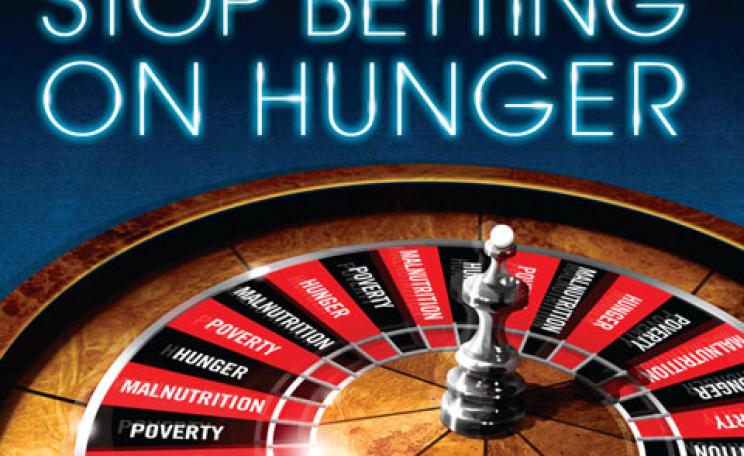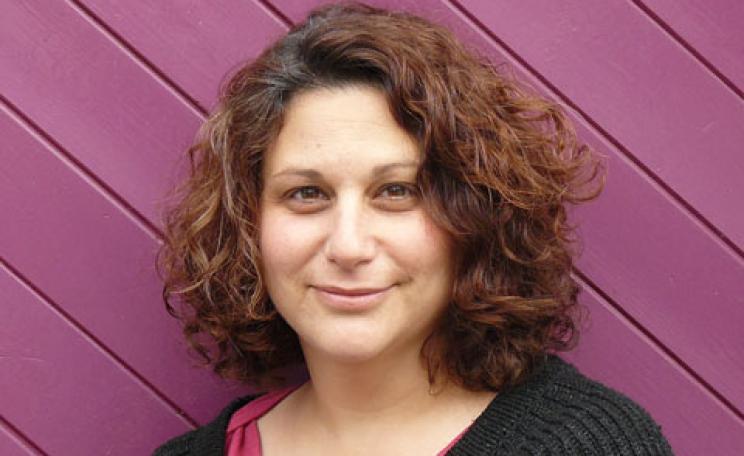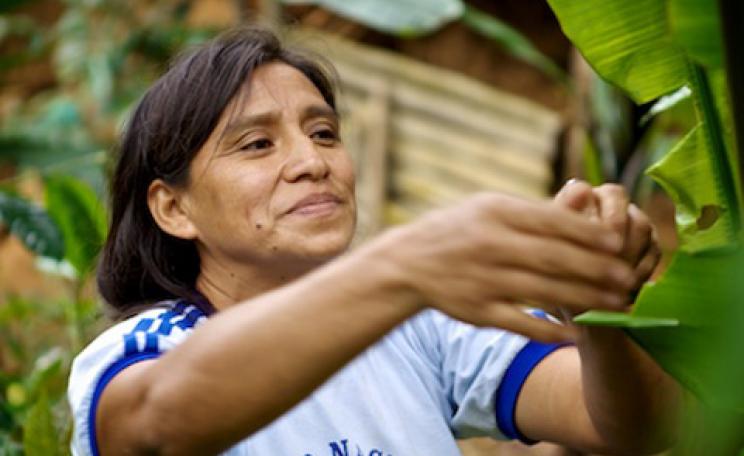Matilda Lee: Why did you write this book?
David Boyle: We have huge amounts of information about corporations, but very little knowledge. The only way to really know what they are is through corporate history that they've sponsored or a few lines on the website. We've tried to create a new corporate narrative.
When I started researching the book I went to the City Business Library, which used to be a wonderful source of information. They now throw everything away after 3 years. I think this lack of depth- which is a symptom of branding - is part of a wider problem. It is similar to the complete ignorance of financial markets partly being the cause of the crash of 2008. That is the justification for the book - to find out what these companies were and are. What we found, in fact, was a whole series of tragedies.
ML: Can big ever be good?
Andrew Simms: The problem with scale in the economy - be it at an enterprise or an institution - it that being big makes it harder and harder to be responsive to local circumstances. We have not yet found a way to make large institutions work well at a local level. When you have too many large organisations you get imbalance, frailty and vulnerability. Diversity of scale, size and range and type of organisation - as in nature - is an insurance policy against disaster. Optimal diversity delivers greater resilience. That's not to say you can't have any large organisations, but the problem at the moment is whichever sector you look in there has been a relentless trend towards ever fewer, ever larger companies dominating larger shares of the market. The larger they are the harder they fall.
ML: How should we reform the UK's banking sector?
DB: We are not going to sort out banking in this country until we split them up into a smaller scales. I don't just mean splitting up the investment banks from the ordinary retail banks. I think they've got to create a new small banking sector. Some of that is going to come out of the existing banks.
We are incredibly impoverished in this country, in our banks, compared to all the nations we compete with - France, Germany the US - where there is a huge diversity of banking and local banking.
I think we need a Community Reinvestment Act like they have in the States, which has in effect capitalised the new community banking sector.
I spent the first two months of this year is a town in western Massachusetts where there are 11 banks. Sure, there are arguments about whether or not they are vulnerable. But the fact is, they are flexible, they've got local knowledge, they can understand their local market and can lend on things other than property bubbles, which is currently all that our banks are lending on.
ML: What should we expect from brands?
DB: I think brands are bogus. The idea that we are committed to brands is nonsense. People are very suspicious of and increasingly disloyal to brands. The big brands are losing value. I think the word brand implies something shiny, untrustworthy, constructed, and something fake. I think people are longing for something deeper and much more authentic. Anything that is rooted in a real place, in real people, that is human, that is flawed in that sense, that is 3 dimensional. It is a parallel argument to the green economy.
The more people who search for the authentic and reject what is glibly branded, the more the mainstream will have to provide it.
ML: Should groups such as WWF and Greenpeace be engaging with corporations to make them better, or should they be looking to more radical solutions?
DB: I don't see those as opposing options. I don't think we should be puritanical about this, I think we should work with whatever the points are that have a possibility of change. To refuse to have anything to do with corporations would close off a whole range of options. As well as campaigning on the outside, we need to work with people on the inside if we want to see change happen. It's bringing those two pressure points to bear simultaneously. The corporations are run by human beings who are, hopefully, susceptible to change themselves.
ML: Is there a role for shareholder activism given your scepticism of public companies?
DB: I think it is a really important role. Major shifts happen historically when a whole lot of other things come together simultaneously. There is no one magic strategy, but a whole range of ways to bring pressure to bear. Shareholder activism hits where it counts. Part of the history of the movement we represent is that things work best when those campaigning from the inside and those campaigning from the outside have some respect for each other. The history is that they tend to be very suspicious of each other, and I think that's a pity.
I don't think keeping companies private is any kind of solution, it's just that going public requires compromise with the financial market that tends to undermine vision and radicalism and innovation. It tends to make things bland.
ML: Where do we start in creating a green economy?
AS: We begin by making sure that the economy is hard wired to the natural resource base on which it depends. Only when you understand that the economy cannot outgrow its parent company, the biosphere, do you have a chance of having a genuinely green economy. To get us there means a whole range of other things: the prices we pay for things have to include the social and environmental cost; we have to have indicators telling us whether we are moving in the right direction or not. Most of the economic indicators used to measure the economy, tell you nothing of the sort. If anything, they are an inadvertent measure of the speed with which we are liquidating our natural assets.
The economy can learn an awful lot about how nature organises its business. For example, Darwinism gets taken by business as a defence for the most aggressive, least thoughtful forms of organising our economy - so the less regulation is better, the closer you are getting to the natural state of the economy. What Darwin actually refers to by the survival of the fittest was forms that have evolved that are most fit to survive in their environment.
When you look in nature, there are a whole range of other evolutionary strategies - which make you fit to survive and they include cooperation, symbiosis, co-evolution, and diversity - lots of things that are actually driven out by business as usual. We can learn a lot from looking into nature, but not in the way we've done so far.
In biology and ecology there is the idea of the climax ecosystem - the point at which populations of plants and animals are in equilibrium and in balance with the wider ecosystem. We can look to establish a climax economy where the economy is in balance with the biosphere on which it depends.
Eminent Corporations: the rise and fall of the great British Corporation by Andrew Simms and David Boyle (Constable, £8.99)
Matilda Lee is the Ecologist's Community Affairs Editor
Further information:
Where did our money go? by the New Economics Foundation
| READ MORE... | |
 |
INVESTIGATION A steady-state economy Economist Herman E Daly argues that our future depends on a new economic model, one that needs to be defined by the dynamic balance – the steady state – of the natural world upon which it depends. |
 |
COMMENT Greenpeace's ceasefire with the logging companies was not a deal with the devil It took many environmentalists by surprise - that fiercely campaigning NGOs could not just make peace with their corporate enemies but enter into an agreement with them. This is a crucial step forward, says Richard Brooks |
 |
HOW TO MAKE A DIFFERENCE How to get community investment in green projects Many a good idea has floundered for lack of funds, but with today's models for community finance this need no longer be so... |
 |
NEWS RBS should become the UK's Green Investment Bank, say NGOs Campaign groups say turning the publicly-owned RBS into the Green Investment Bank would save money and also provide a model of sustainability for the rest of the banking sector |
 |
HOW TO MAKE A DIFFERENCE How credit unions can succeed where banks fail If you're looking for small, short-term loans for a green project, it's worth borrowing from a credit union instead of a bank |








